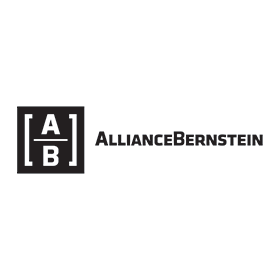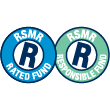


North America

sriServices SRI Style - Sustainability Select
The ES Alliance Bernstein (AB) Sustainable US Equity Fund (onshore name) forms part of the wider Sustainable Thematic platform at Alliance Bernstein. The fund only invests in companies that provide products or services that address the world’s biggest challenges with the definition of sustainability and those challenges based on the United Nations Sustainable Development Goals. There is both a Luxembourg SICAV and UK OEIC versions of the strategy. The fund is categorised within the IA North America sector with the S&P 500 as its benchmark. The strategy launched in April 2001 with an onshore fund launched in March 2020.
Click here to read the Alliance Bernstein approach to ESG investing.
Daniel C Roarty was appointed Chief Investment Officer of AB’s Sustainable Thematic Equities team, which manages a suite of geographically diverse strategies dedicated to the achievement of the United Nations (UN) Sustainable Development Goals (SDGs), in 2013. Daniel joined the firm in 2011 as global technology sector head on the Global/International Research Growth team and was named team lead in early 2012. Daniel previously spent nine years at Nuveen Investments, where he co-managed both a large-cap and a multi-cap growth strategy. His research experience includes coverage of technology, industrials and financials stocks at Morgan Stanley and Goldman Sachs. Daniel holds a BS in finance from Fairfield University and an MBA from the Wharton School at the University of Pennsylvania. He is a CFA charterholder and is based in Philadelphia.
Please click on the 'Fund Data' button above.
The fund is managed under three broad pillars:
Alliance Bernstein believe you cannot separate out analysis of economic terms or financial terms with sustainability issues as the team believe these are intertwined. Due to this AB feel their clients are able to connect their portfolios with the real world. Once sustainable issues have been identified, the process of seeking the relevant solutions is driven by the team undertaking grassroots research (i.e. boots-on-the-ground) by understanding how the solutions work at a local level as this can be different depending on the geography.
When analysing a business from the bottom up they focus on the return profile and risk profile and then difference between the two. For the return profile, five years of financial modelling is undertaken to ascertain an expected IRR for that business. For the risk profile, this is not outsourced but instead, a proprietary materiality map is used covering environmental, social, governance, operational, strategic and financial material factors. A materiality map has been created for every industry. Investment in the portfolio is based on the spread between the return profile and risk profile for a company, with companies with high spreads the more appealing (target portfolio IRR of 12%-15% with a spread of 300bps). The sectoral and theme exposure is a by-product of this bottom-up analysis and risk/reward profiles.
The fund only invests in companies that provide products or services that address the world’s biggest challenges with the definition of sustainability and those challenges based on the United Nations (UN) Sustainable Development Goals (SDGs). Utilising the 17 high level UN SDGs, three primary themes have been identified, namely health, empowerment and climate with sub-themes under each primary theme.
The fund does exclude some industries which are referred to as misalignments by the process. These cover the following and are immediately excluded if company revenue is directly generated from these areas:
Indirect revenue applies to general products and has a threshold of 20% (direct has a 0% threshold). Companies are also monitored for conduct-based violations generally defined by the UN Global Compact. Each company has to be mapped to at least one UN SDG with revenue aligned to this.
ESIGHT is a proprietary tool that allows the sharing of ESG knowledge across the wider firm covering both equities and fixed income with the ability to track the progress of ESG issues over time.
The investment process is proprietary using the 17 UN Sustainable Development Goals (SDG) and circa 106 of the 169 underlying UN SDG targets to formulate the three core themes of health, empowerment and climate. Each of these three core themes consists of subthemes. Companies must link to at least one UN SDG with the use of the inhouse materiality map for risk assessment and the hurdle rate applied to a company. A minimum of 25% of revenue from products aligned to UN SDGs is required for a company to be considered. This is the floor level with the majority around 80%. Direct exposure to the recognised misalignments is not permitted with indirect limited to 20% of revenue exposure. Zero percentage direct exposure to the misalignments is a differentiator as many peers will have some form of limit in place for direct (e.g. 5% of revenue exposure).
ESG knowledge is shared across Alliance Bernstein using the proprietary tool ESIGHT that covers both fixed income and equities and allows the tracking of progress over time. In addition, the relationship with Columbia University Climate Science Institute provides links with academia and the education of the portfolio managers on climate change as well as research on particular themes.
Internal resource is strong with a long-standing team that has low turnover that is very much collaborative in approach utilising grassroots research to understand the solutions required within the respective themes. The team are spread geographically, so remote collaboration is the norm.
The strength of resource, the long-term track record, the proprietary process and proprietary tools with sufficient differentiators warrants the award of an RSMR Responsible rating.
Important Notice
This document is aimed at Investment Professionals only and should not be relied upon by Private Investors. Our comments and opinion are intended as general information only and do not constitute advice or recommendation. Information is sourced directly from fund managers and websites. Therefore, this information is as current as is available at the time of production.
Rayner Spencer Mills Research Limited is a limited company registered in England and Wales under Company. Registration Number 5227656. Registered Office: Number 20, Ryefield Business Park, Belton Road, Silsden, BD20 0EE. RSMR is a registered trademark.